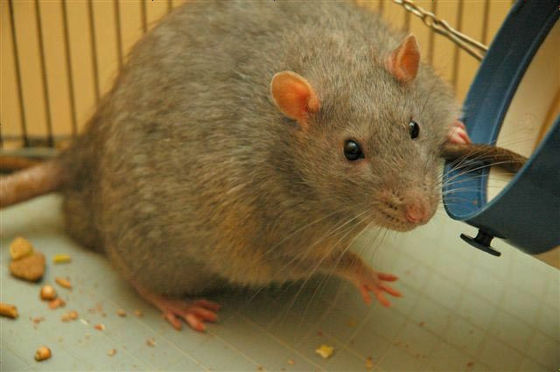Mechanisms involving intestinal bacteria in obesity are elucidated

Many reports have been raised that obesity involves intestinal bacteria, but the mechanism has not been well understood. Researchers at Yale University have announced at the science journal Nature that bacteria have discovered a mechanism to induce obesity, from an experiment that keeps giving mice a high fat diet.
Acetate mediates a microbiome - brain - β - cell axis to promote metabolic syndrome: Nature: Nature Publishing Group
http://www.nature.com/nature/journal/v534/n7606/full/nature18309.html
How altered gut microbes cause obesity - ScienceDaily
https://www.sciencedaily.com/releases/2016/06/160608142554.htm
In rodents fed high-fat diets, gut microbes boost hunger, trigger obesity | Ars Technica
http://arstechnica.com/science/2016/06/in-rodents-fed-high-fat-diets-gut-microbes-boost-hunger-trigger-obesity/
Research teams such as Professor Gerald Schulzman of Yale University investigated the changes caused by intestinal bacteria during the process of obesity by continuing to give a high fat diet to rats.
In previous studies, intestinal bacteria of mice fermented fatty acids in the process of digestion, continuing to give high fat feedShort chain fatty acidsIt was known that more acetic acid was produced among them. It was also known that as acetic acid increased, insulin was secreted by stimulation of pancreatic β cells, but the mechanism was unknown.
In this experiment, researchers discovered that injecting acetate into the mouse brain activates parasympathetic nerves in the brain. The intestinal bacteria stimulated with parasympathetic nerves produce further acetic acid and stimulate beta cells and many insulins are produced in the body. In addition, I found that it also encourages the secretion of hormones that induce overdose of foods such as gastrin and ghrelin.

As mentioned above, mice ingesting a high-fat diet produce acetic acid by intestinal bacteria, thereby stimulating β cells to secrete insulin, secreting insulin-resistant hormones that promote overeating, and Researchers conclude that they write a positive feedback loop of trying to eat high-fat food.
Professor Schulzman suggested that the metabolic syndrome of rats is associated with changes in intestinal bacteria, and this mechanism, by chance, encouraged overeating when starved rats found high nutritious foods, He points out the possibility of playing the role of storing more energy in the body by becoming a body and surpassing starvation. In addition, the research team of Professor Schulzman is planning to study whether the mechanism associated with obesity in rat intestinal bacteria applies to human beings.
Related Posts:







